ARTICLE |Ensuring Continuity: EU Extends Generalised Scheme of Preferences (GSP) Regulation until the end of 2027
8 February 2024

In November 2023, the European Union took a step to ensure the continued application of the Generalized Schemes of Preferences (GSP) Regulation (Regulation (EU) 978/2012) until the end of 2027. The current GSP framework was set to expire on December 31, 2023. However, an extension was deemed necessary as the European Parliament and the Council have not yet reached an agreement on the European Commission’s proposal for a new GSP regulation.
ARTICLE | GSP Hub Website: an easy guide to the EU Generalised Scheme of Preferences
7 April 2023

The GSP Hub website with its new visual, structural, and content updates aims to enhance the information provided on the EU Generalised Scheme of Preferences in an accessible and user-friendly way. The website has been designed to collect information of relevance to the European Commission’s monitoring activities and provide GSP stakeholders with support and information for their advocacy activities regarding the GSP as a whole, and individual beneficiary countries, or international conventions. It is now easier to access information that was previously dispersed or convoluted.
The homepage of the GSP Hub Website provides access to several subpages that incorporate essential information. Three newly added boxes provide direct access to information on the GSP review, the GSP Reports, and the Access2Markets tool. From the information on the arrangements of the beneficiary countries and the steps planned forward for the GSP, everything is available in one scroll!.
TRADE BRIEF | ITC: Export Potential and Diversification in the Philippines
29 November 2021
Check out the findings of the export potential assessment conducted by the International Trade Centre under the Arise Plus Project in the Philippines. Learn more about the kind of opportunities exist for Filipino exporters on the EU market and what kind of barriers they face. Click on the button below to read the full assessment.
PUBLICATION | THE GSP AT A GLANCE
05 November 2021

Check out the new GSP brochure "The GSP at a glance". The document provides an overview of the main characteristics of the Generalised Scheme of Preferences and its different arrangements. It also provides an overview of recent economic trends in terms of preferential imports and most important product groups. Furthermore, the brochure gives insights on developments relating to the values objective of the GSP and it's contribution to sustainable development. Readers are also provided with an overview of avenues to engage on the GSP.
ARTICLE | A new GSP Framework
20 October 2021

After ten years in force, the European Commission reviews the Regulation governing the Generalised Scheme of Preferences (GSP) which grants eligible developing countries duty-free or reduced access to the European market. This makes the GSP an important tool of the EU’s trade and development policy supporting the elimination of poverty and economic development in beneficiary countries. What does the European Commission suggest? Read our summary article.
PUBLICATION | GSP INSIGHTS
20 August 2021
The GSP Insights publication is out now! The publication gathers concise information on the EU’s Generalised Scheme of Preferences (GSP), including the most recent trends and insights relating to both the economic and values objectives of the scheme. It aims to increase awareness of the benefits and opportunities the GSP offers for industry stakeholders, civil society, trade unions, and public authorities in the EU and GSP beneficiary countries.
ARTICLE | Global Value Chains for LDCs
30 June 2021
How can the participation of Least Developed Countries in global supply and value chains be strengthened to support export diversification and economic recovery after the pandemic? In their article, Alessandro Antimiani and Lucian Cernat of the European Commission's DG TRADE suggest a new multilateral initiative, advocating for a new ‘GVCs for LDCs’ global preferential scheme based on least developed countries’ value added.
ARTICLE | Same but different: A comparison of the EU and US GSP schemes
26 May 2021

The European Union and the United States are among the biggest traders in the world, both offering GSP preferences to a vast number of beneficiaries. While the main incentives of offering tariff reductions to lower-income countries are similar within the two schemes, there are differences in their practical implementation. This article aims to outline the most significant differences between the EU and US GSP schemes.
POLICY BRIEF | Export potential of Uzbek goods in the EU
11 May 2021
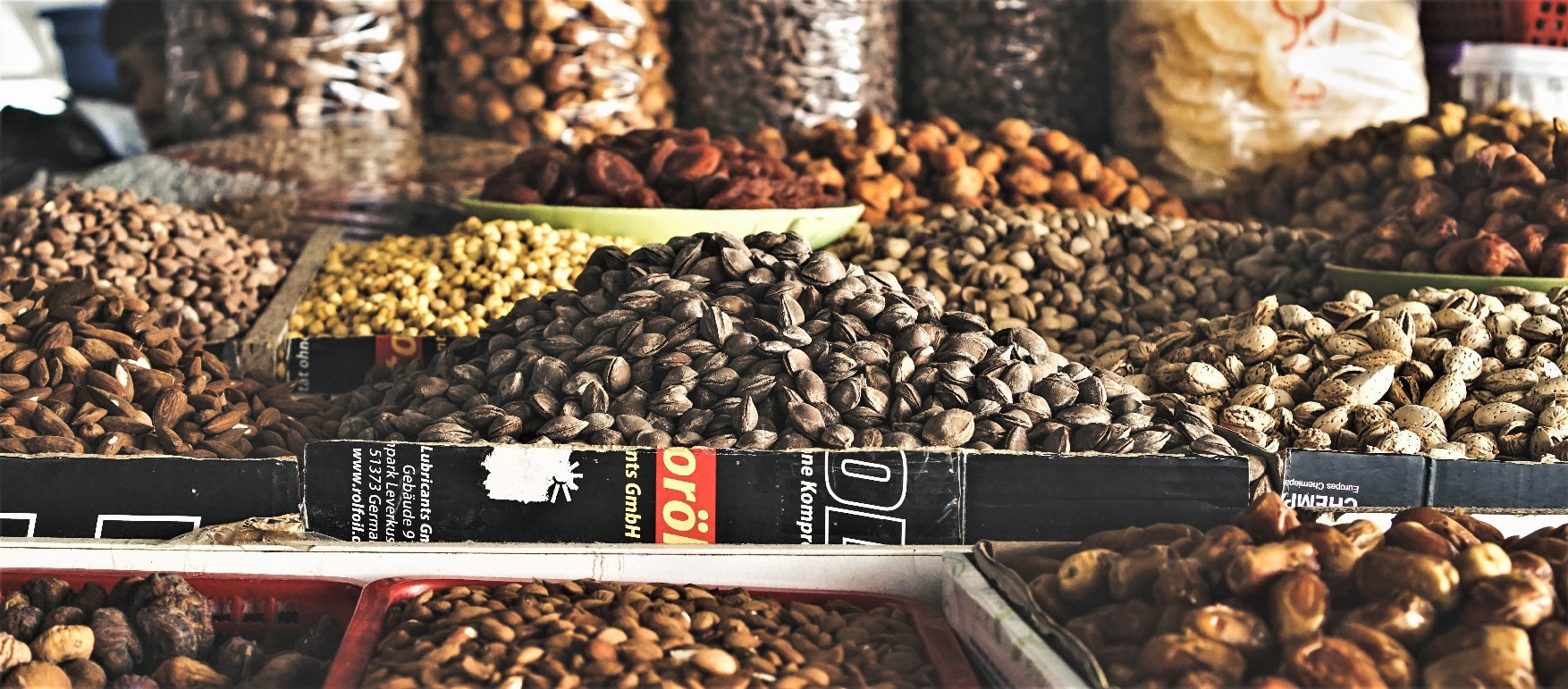
What is the export potential of Uzbek products on the European market? To date, the EU only plays a subordinate role as an export market for Uzbek products, both in terms of value and product range. The German Economic Team (GET) identifies products of three product groups, fruits and vegetables, textiles, and metals, as high potential products on the EU market. Intensified trade relations would also help Uzbekistan to diversify its export markets. Read this policy brief by the GET and get more insights.
NEWS | Uzbekistan: the newest member of the GSP+ arrangement
27 April 2021
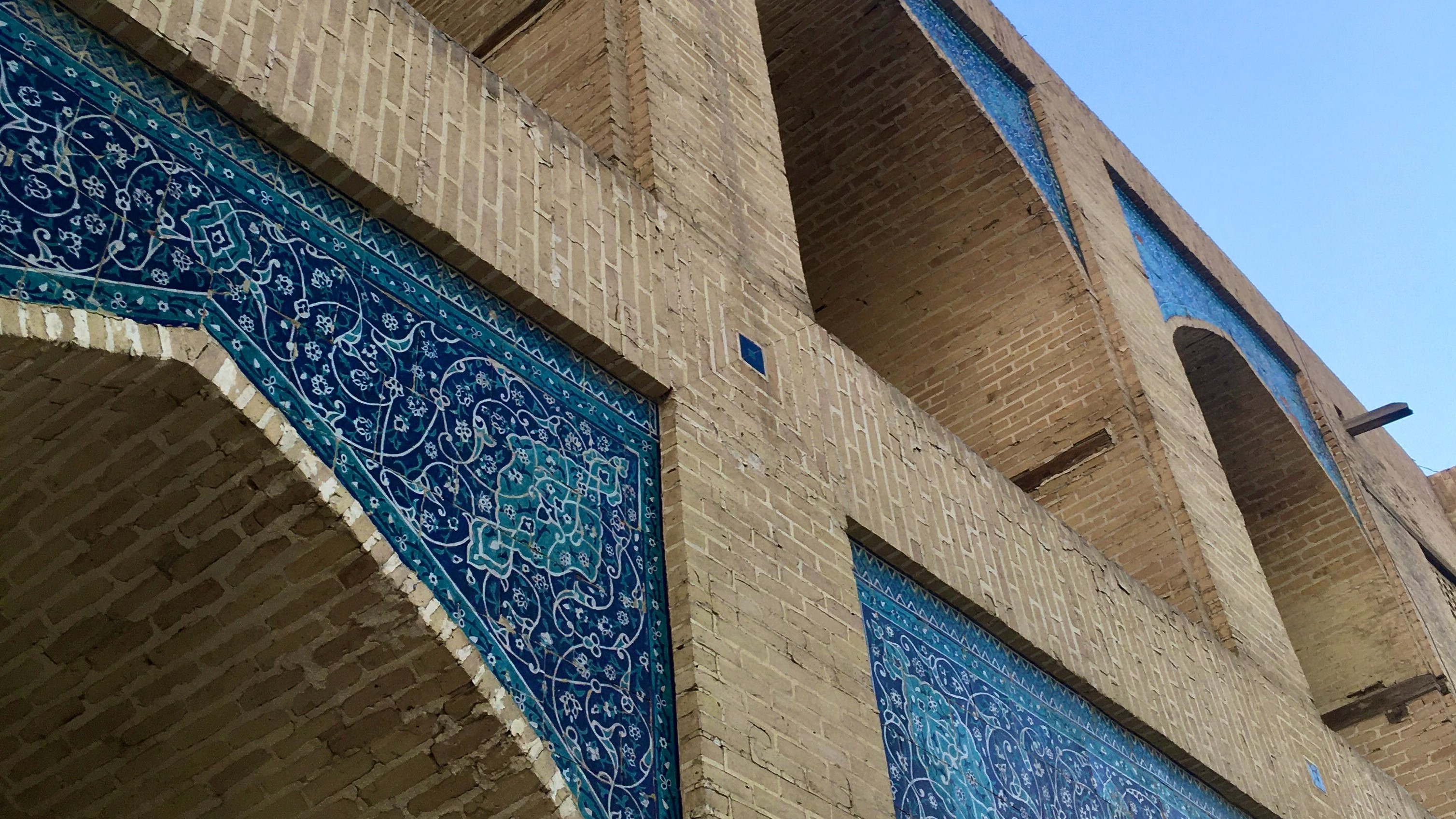
On 10th April 2021, Uzbekistan joined the group of GSP+ beneficiaries, becoming the ninth country to participate in the special incentive arrangement for sustainable development and good governance. Through the GSP+, Uzbekistan will receive duty-free access to the EU market for about 66% of tariff lines. At the same time, the GSP+ supports Uzbekistan in implementing sustainable development objectives and making further progress in the fields of human and labour rights, environmental and climate protection and good governance.
NEWS | Life after LDC Graduation: How is Bangladesh poised for EU GSP+?
21 April 2021

Bangladesh received the endorsement of the United Nations Committee for Development Policy (UN CDP) regarding its final timeline for exiting the group of least developed countries (LDCs). The country is now scheduled to leave the category in 2026, i.e., with extra two years to get ready for a smooth and sustainable transition. On leaving the group, Bangladesh is going to miss out on the LDC category specific preferences and privileges extended by its international development partners, inter alia the preferences granted by the EBA. Read this article in 'The Business Standard' and learn more about Bangladesh's readiness to join the GSP+ arrangement.
Interview | The GSP and its effect on global supply chains pre- and post-COVID, Interview with Niclas Frederic Poitiers, Research Fellow, Bruegel
03 March 2021
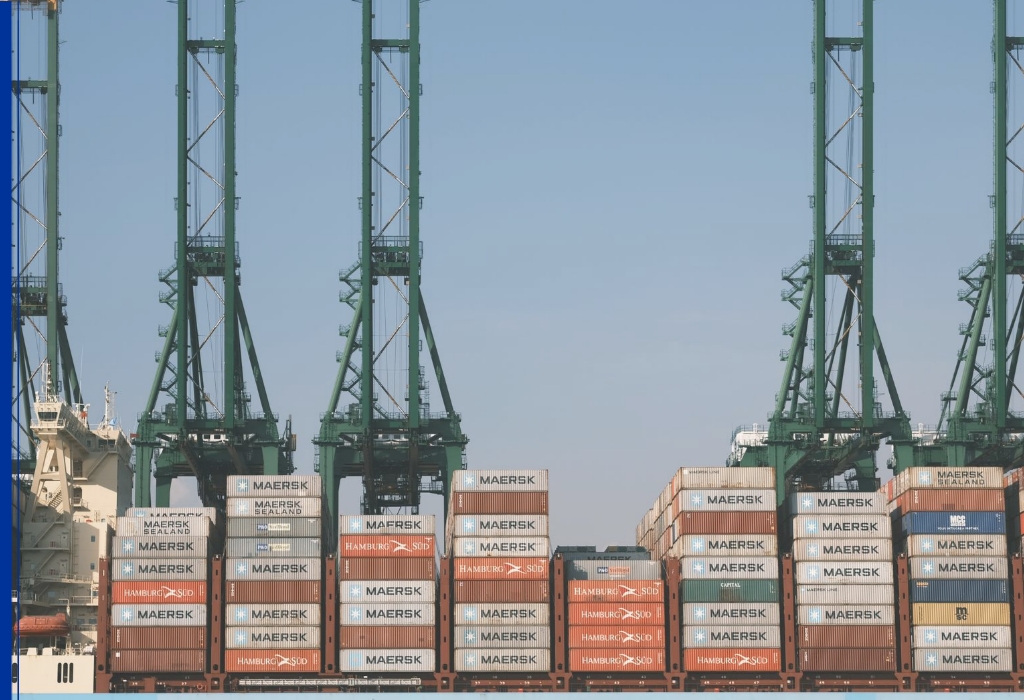
The GSP Hub team sat down with Mr Niclas Frederic Poitiers of the Brussels-based economic think-tank Bruegel for a discussion on the economic implications of the GSP. Mr Poitiers, who is working on EU trade policy and e-commerce in trade, gave us valuable insight into the economic and social aspects of the GSP and the effect of the scheme on supply chains globally. Read our interview to learn more about the synergies between the GSP and global trade and how the scheme can further evolve in this regard.
Interview | Three Questions about the GSP to MEP Raphaël Glucksmann
19 February 2021
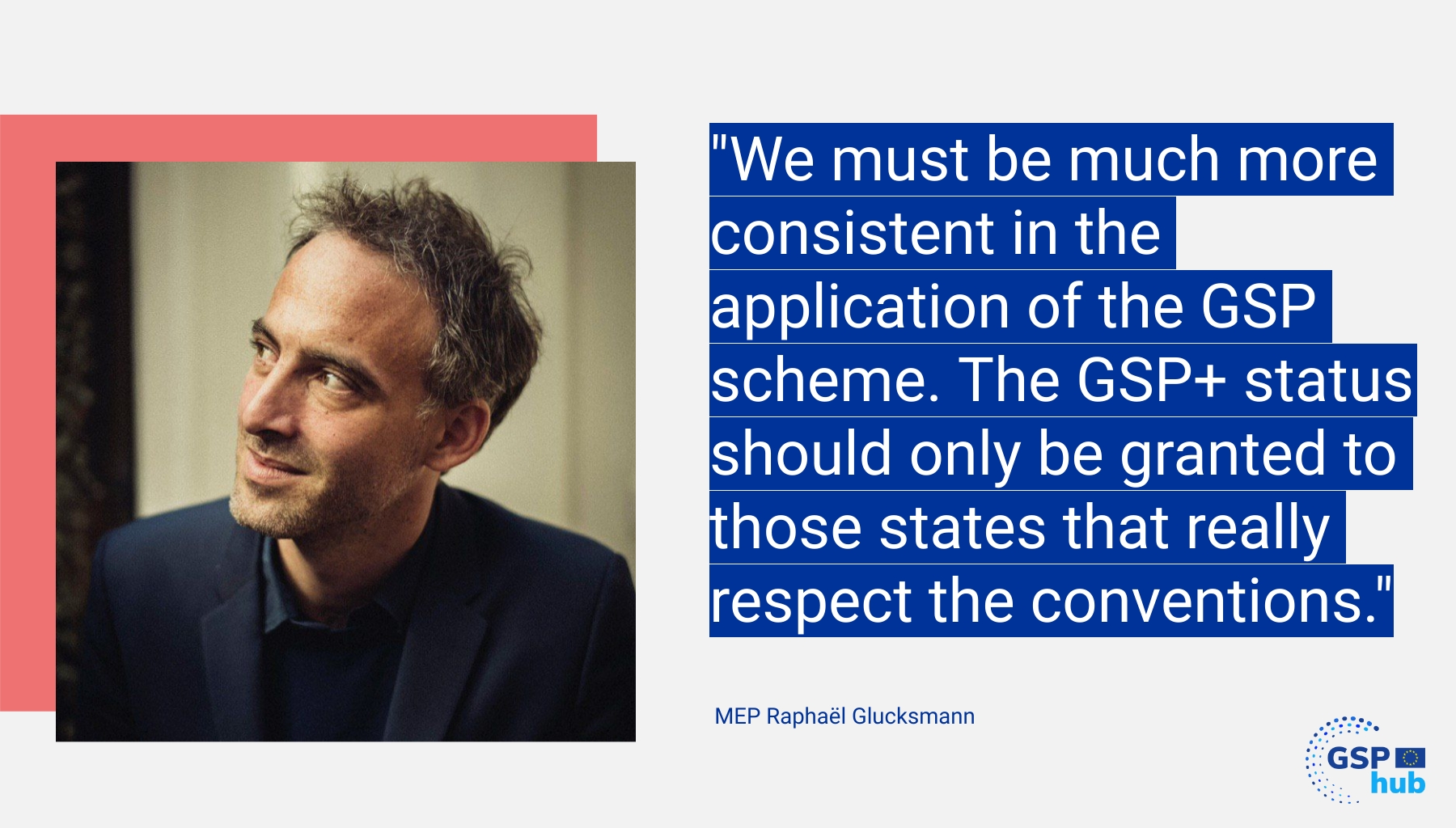
In part three of our interview series, MEP Raphaël Glucksmann highlights trade as an important means to achieve sustainable, democratic & social development. How does the GSP relate to that? Click on the link to find out more.
Interview | Three Questions about the GSP to MEP Marie-Pierre Vedrenne
18 February 2021
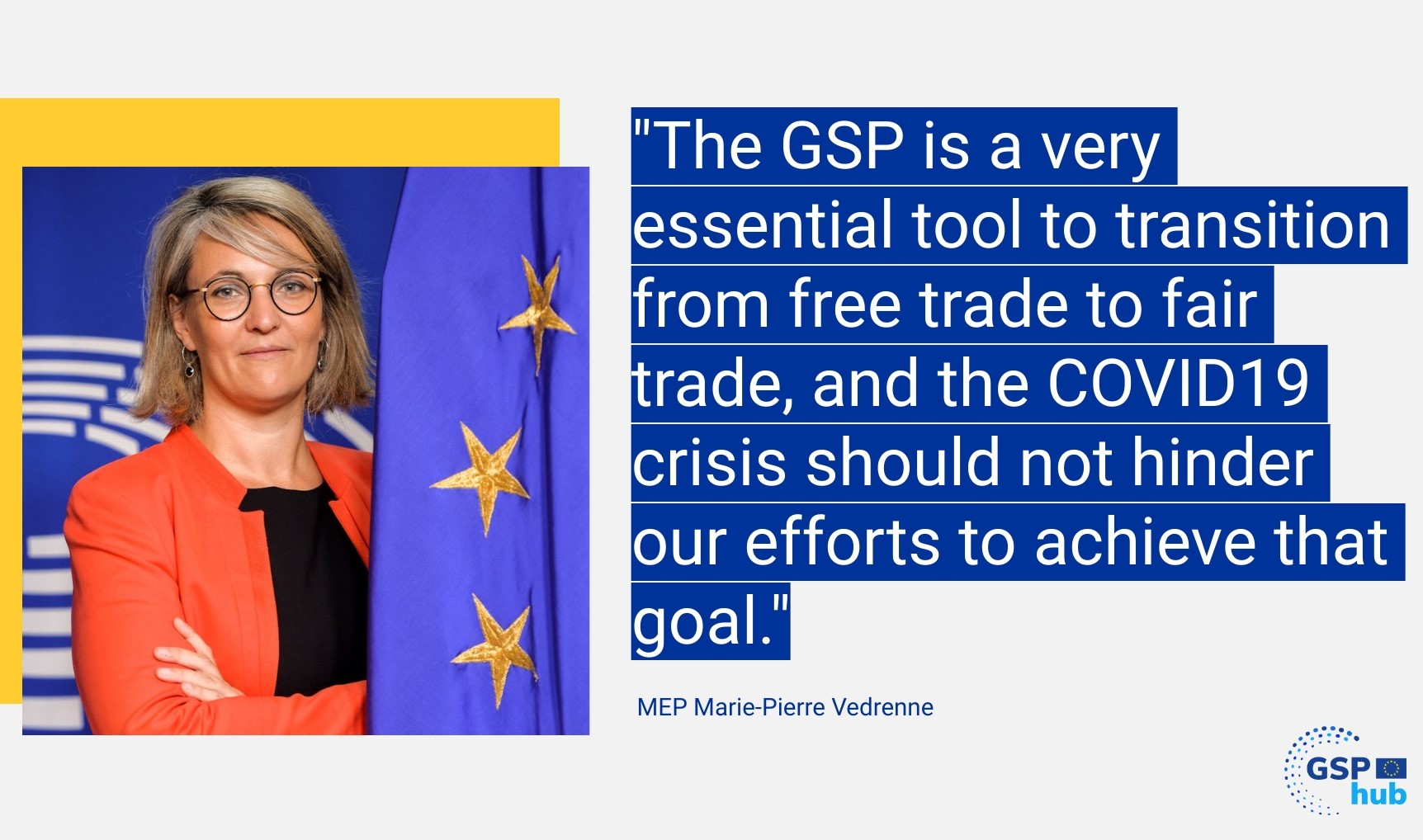
What is the role of the GSP for a post-COVID19 recovery and how can the impact created by the GSP be improved? Read part two of our short interview series with MEPs, today with MEP Marie-Pierre Vedrenne.
Interview | Three Questions about the GSP to MEP Saskia Bricmont
17 February 2021
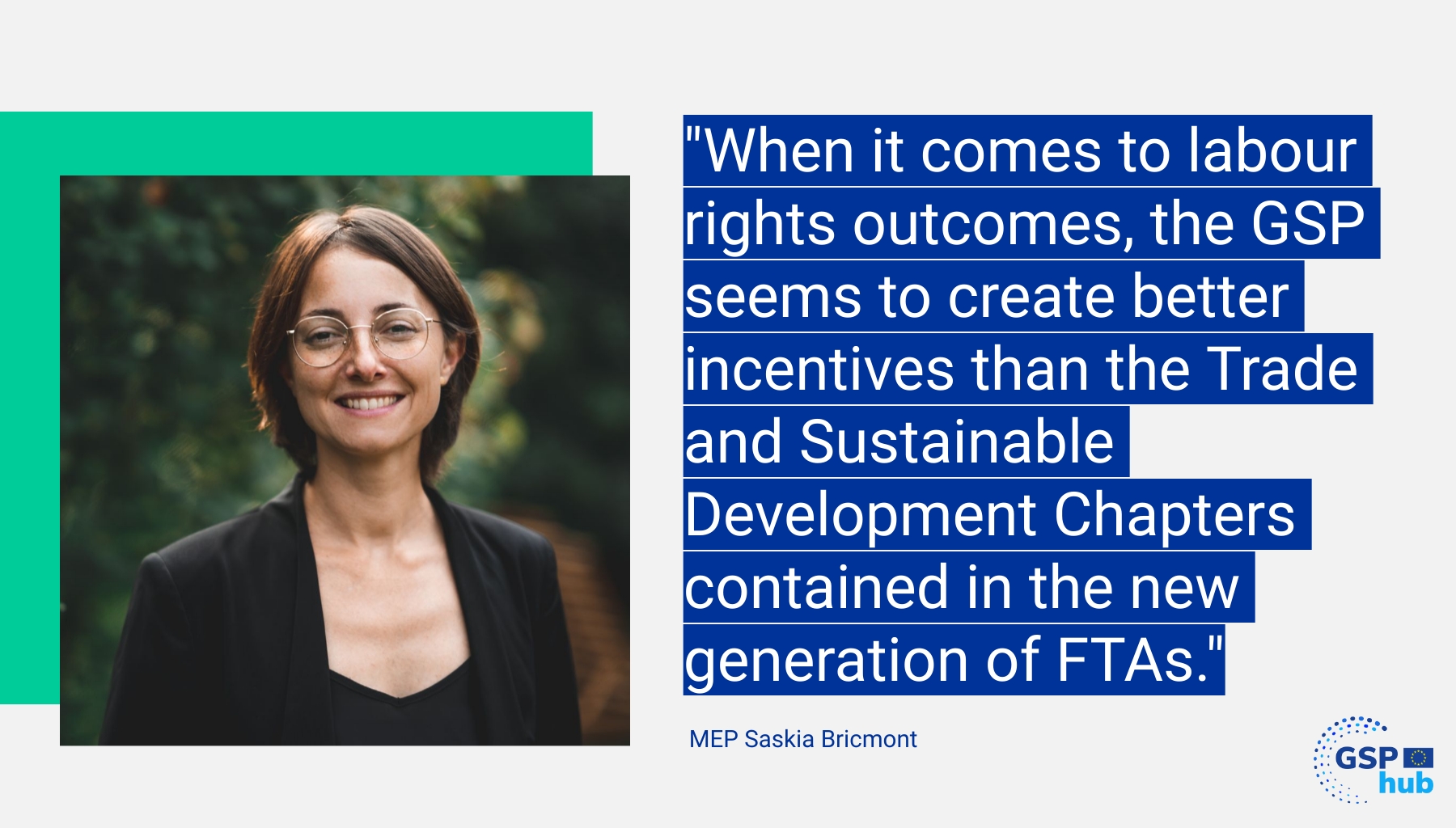
How is the GSP connected to the EU's trade and values agenda? In what area does the arrangement not live up to its potential? Read the first interview of our short interview series with MEPs, today with MEP Saskia Bricmont.
Interview | Green, Sustainable Partnership?- The GSP from an environmental perspective, Interview with Eline Blot and Marianne Kettunen from the IEEP
12 February 2021

The GSP Hub team sat down with the Institute for European Environmental Policy for a discussion on the environmental implications of the GSP. Does the arrangement promote sustainable trade between the EU and beneficiary countries? Can the GSP part of a greener global future? What about the European Green Deal? Read our interview to learn more about the green aspect of the GSP and how the scheme can further evolve in this regard.
Opinion | Can Bangladesh get prepared for EU's GSP-plus?
04 February 2021

Over the past few years, Bangladesh has progressed a lot in terms of economic and social development. However, graduation from the LDC group will be the most important milestone that Bangladesh could achieve in the coming years. But the question remains: is Bangladesh's trade sector ready to face the challenges after the country graduates from Least Developed Country (LDC) status in 2024? Losing preferential market access in many export destinations seems to be the most challenging aspect of the path of smooth graduation. Read this op-ed by Dr Khondaker Golam Moazzem, Research Director, Centre for Policy Dialogue (CPD) and Abeer Khandker, Senior Lecturer, East West University and share your views!
PUBLICATION | GSP INSIGHTS
20 August 2021
The GSP Insights publication is out now! The publication gathers concise information on the EU’s Generalised Scheme of Preferences (GSP), including the most recent trends and insights relating to both the economic and values objectives of the scheme. It aims to increase awareness of the benefits and opportunities the GSP offers for industry stakeholders, civil society, trade unions, and public authorities in the EU and GSP beneficiary countries.
STORY | Increasing Pakistan’s international competitiveness through the GSP
14 January 2021
Read the stoy of Mr Rashid Attari, Export/Import Deputy Manager at Kay & Emms (Pvt) Ltd. and his insights on how the GSP supported trade industries and overall competitiveness of Pakistani products on the world market.
